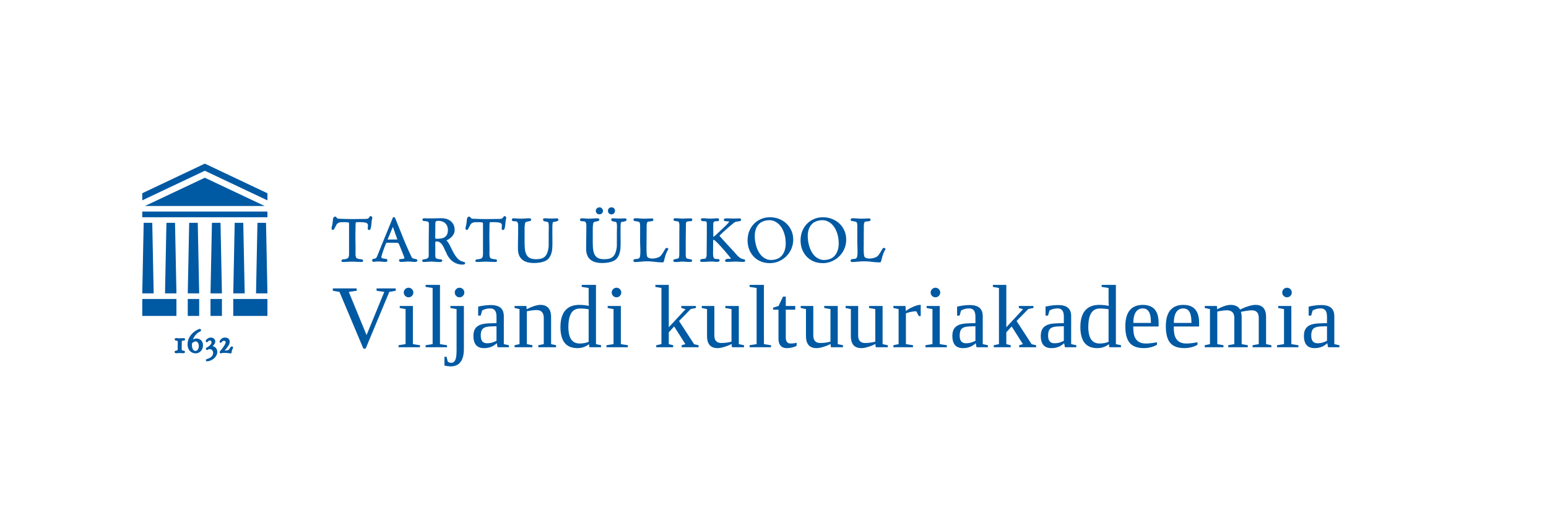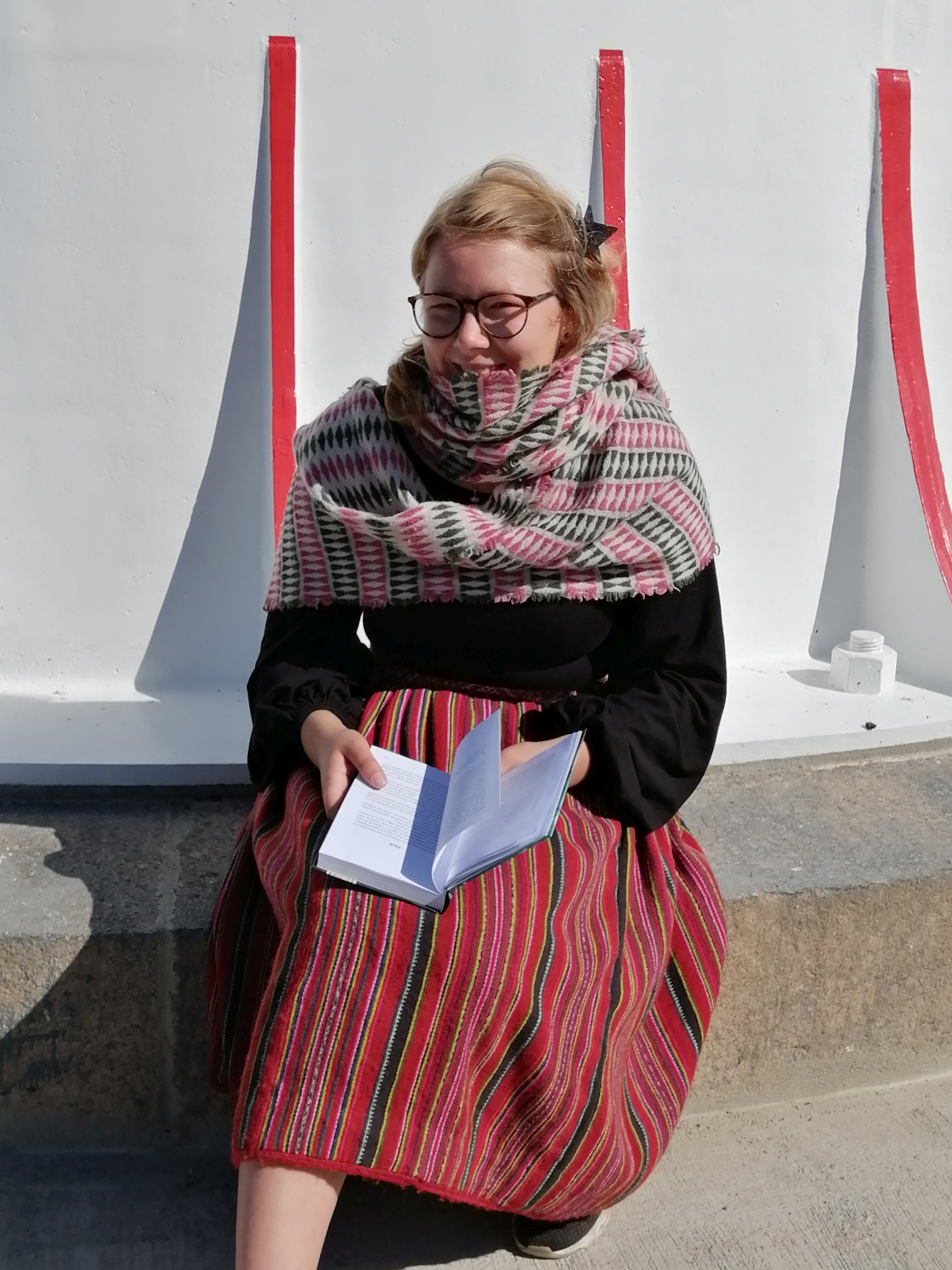“HUVIJUHTIDE JA LAPSEVANEMATE TÖÖ LÄÄNE-VIRUMAAL” (juhendaja Külli Salumäe).
LÜHIÜLEVAADE: Anu Lukk on oma lõputöös keskendunud kaasaegse kooliproblemaatika ühele olulisemale teemale – kooli ja kodu koostööle. Töös vaadeldakse seda huvijuhi ja lastevanemate koostöö aspektist.
Koostöö edendamist on käsitletud enamasti klassijuhatajate, õpetajate ja kooli juhtkonna liikmete kohustusena. Kuna traditsiooniliste mudelite rakendamine ei anna tänapäeval enam alati oodatud tulemusi, tuleb koolidel leida uusi teid ja lähenemisi soodsa õpikeskkonna kujundamiseks ning lapse arengu ja tema koolis toimetuleku toetamiseks. Üsna tagasihoidlikult on seni rakendatud lastevanemate kaasamist koolis toimuvate sündmuste ettevalmistamisse ja läbiviimisse. Huvijuhtide panus taolise koostöövormi arendamisel võiks olla tunduvalt suurem.
Töö teoreetilises osas on üliõpilane valdkonna oluliste autorite töödele ning kooli ja kodu koostööd reguleerivale seadustikule tuginedes toonud esile peamised Eestis rakendatavad kooli ja kodu koostöö vormid. Kuna autor on pidanud korduvalt nentima, et lastevanemate ning huvijuhtide omavahelist koostööd on käsitletud ja uuritud vähe, on ta esitanud omapoolseid nägemusi, kuidas juba käibelolevad koostöömeetodid ja –vormid võiksid leida rakendust ka huvijuhi ja lastevanemate koostöös.
Lääne-Virumaa huvijuhtide ning kolme gümnaasiumi VII- IX klassi õpilaste lastevanemate seas läbi viidud uuringu põhjal on töö autor jõudnud järelduseni, et positiivselt mõjutavatest teguritest on olulisimad kiire ja piisav infovahetus kooli ja kodu vahel, koolipoolne soosiv suhtumine koostöösse (muuhulgas abi palumine) ning kooli traditsioonid. Negatiivselt mõjuvate tegurite puhul paigutub ülekaalukalt esikohale vanemate ajapuudus ning teadmatus, kuidas saab koolis toimuva toetamisel kasulik olla.
Tähelepanuväärsena võib esile tõsta ka uurimistulemust, et vanemad hindavad huvijuhtidest madalamalt nii huvijuhi ettevalmistust lapsevanemate kaasamiseks, lastevanemate kursisolekut koolis toimuvaga kui ka huvijuhi kui infokanali tõhusust.
Külli Salumäe
Huvihariduse lektor
TÜ Viljandi Kultuuriakadeemia
LÄBITUD ÕPPEKAVA: Huvijuht-loovtegevuse õpetaja õppekava
SUMMARY: The object of this theses is to collect information: 1) to get to know the attitudes about school and home co-operation among Lääne-Virumaa 5th – 7 th grade parents; 2) to get to know which factors affect school and home co-operation; 3) parents attitudes torward activity leader’s work and co-operating with them; 4) which school-home co-operation methods parents have been in contact with and which ones they accept.
This study provides an overview co-operation between activity leaders and parents, parents’ attitudes towards co-operating with the activity leaders and the co-operation methods that parents are willing to work with.
The theme is necessary for activity´s leaders to understand the expectations and attitudes of parents towards home and school co-operation. It is necessary to know, what parents think of it and if they are ready to co-operate with school and how are they involved in the co-operations with the activity leaders.
This theses contains three parts: the first part consist of the current situation that exists with regards to home and school co-operations, the laws that regulate it, different home and school co-operation models, how it affects a child’s development and co-operation through the class supervisor and teacher; the second part provides an overview of the need of activity leader´s and parental co-operation, affecting factors and different forms of co-operations that activity leaders could implement based on the literature; the third part provides an overview of the empirical study goals, methods, population and sample. The third part introduces an analysis of the questionnaire that was done among parents. The results were compared with the questionnaire completed among activity leaders.
The thesis material comes from different books, articles, Internet articles, Lääne-Virumaa schools’ development plans and Middle- and High School Law.
It appeared in the study, that parents’ attitudes towards school and home co-operation is generally positive and most of them consider it necessary to involve parents in the school life. According to the parents, the biggest facilitator of home and school co-operation is fast and accurate information as well as positive and involved teachers. Factors limiting effective cooperation include limited time and contact information. The co-operation with activity leaders is also affected by time shortages and activity leaders’ inability to involve parents.
Lots of parents are not aware of the duties activity leaders perform. The empirical study showed that parents value the readiness to co-operate with the activity leaders mostly low. This could be attributed to the fact that many parents are unclear as to the precise role of the activity leader. In order to create interest in preparing school events among parents, the school has to create good conditions for co-operation and organize more events and activities. Sometimes it is enough to just ask for help from parents.
The home and school co-operation methods that parents have been in contact with the most are: e-school, parent meetings and development interviews. Therefore, it is reasonable for activity leaders to send information for parents through e-school. The parents are ready to fix up and decorate school rooms, to be escorts on field trips/ concerts and share information about activities.
Among the hypotheses set out in this thesis, one was confirmed, the other partly confirmed and one was not confirmed.
The hypothesis that the most affects the co-operation between parents and activity leaders is time shortage and ignorants was confirmed as a large number of parents and activity leaders highlighted this in the empirical study.
The hypothesis that parents do not co-operate with the activity leaders because they do not know who she or he is, was confirmed partly. Lots of parents pointed out, that they do not know who the activity leader is and they have not been in contact with them. I believe that this prevented parents from taking part in meaningful co-operations.
The hypothesis that parents are not interested being involved preparing school events, was not confirmed, because no parent brought out that he/she is not willing to be part of the school events.
In the future it is important to arrange training for parents and also activity leaders. Through training, activity leaders will become more aware of different methods for involving parents and parents can attain more knowledge as to how they can be involved more in different school events and activities.



